Isn’t a miserable reality better than the most interesting illusion?
Philip K. Dick, The Three Stigmata of Palmer Eldritch (1965).
Philip K. Dick
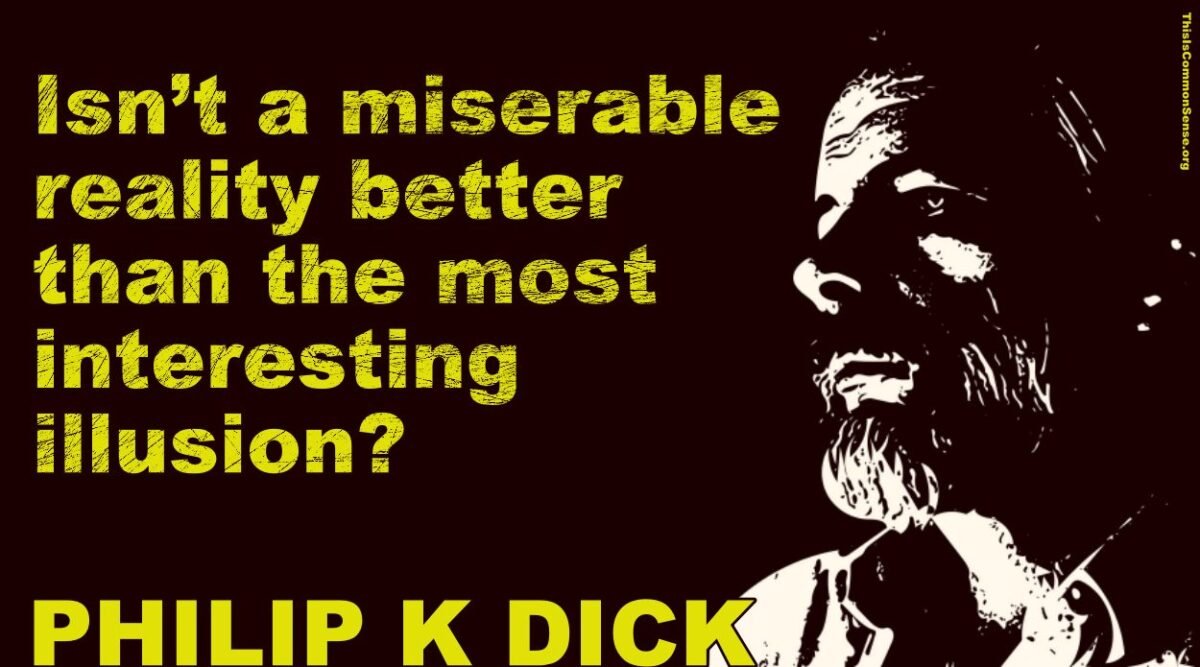

Isn’t a miserable reality better than the most interesting illusion?
Philip K. Dick, The Three Stigmata of Palmer Eldritch (1965).

On January 31, 1849, the Corn Laws were abolished in the United Kingdom, one of the most impressive and far-reaching anti-protectionist moves of all time.
“Corn” stood for all grains, including wheat, oats & barley; the free-trade agitation by John Bright & Richard Cobden was one of the main impetuses for the reform.

“With robotics and AI, this is really the path to abundance for all,” he said at January’s World Economic Forum in Davos. “If you have ubiquitous AI that is essentially free or close to it and ubiquitous robotics, you will have an explosion in the global economy that is truly beyond all precedent.”
The world’s richest man predicted that humanoid robots will soon become pervasive: “there will be more robots than people.”
I’m not much of a science fiction reader — does Nineteen Eighty-Four count? — but from movies and friends’ book suggestions, it sure seems that sci-fi writers have not predicted universally cheerful outcomes from Elon’s prophesied robot population explosion.
How would we control such creatures? Isaac Asimov wrote a lot about this, using his “Three Laws of Robotics,” a Three Commandments for artificial beings. The first reads “A robot may not injure a human being or, through inaction, allow a human being to come to harm.” But surely another scenario is more realistic, Jack Williamson’s The Humanoids (1948). There the shiny robots — primed with “To Serve and Obey, And Guard Men From Harm” — set up a totalitarian society without the State.
Just the humanoids, nannying humans about.
What would life be like with all these “helping hands”?
Remember Thoreau’s warning in Walden (1854)? “If I knew for a certainty that a man was coming to my house with the conscious design of doing me good, I should run for my life.…”
Ronald Reagan quipped that “I’ve always felt the nine most terrifying words in the English language are: ‘I’m from the Government, and I’m here to help.”
Elon Musk merrily imagines an “upgrade” to busybodies and governments.
Artificial busybodies and governments. On auto-pilot.
Terrifying.
This is Common Sense. I’m Paul Jacob.
Illustration created with Nano Banana
See all recent commentary
(simplified and organized)
See recent popular posts
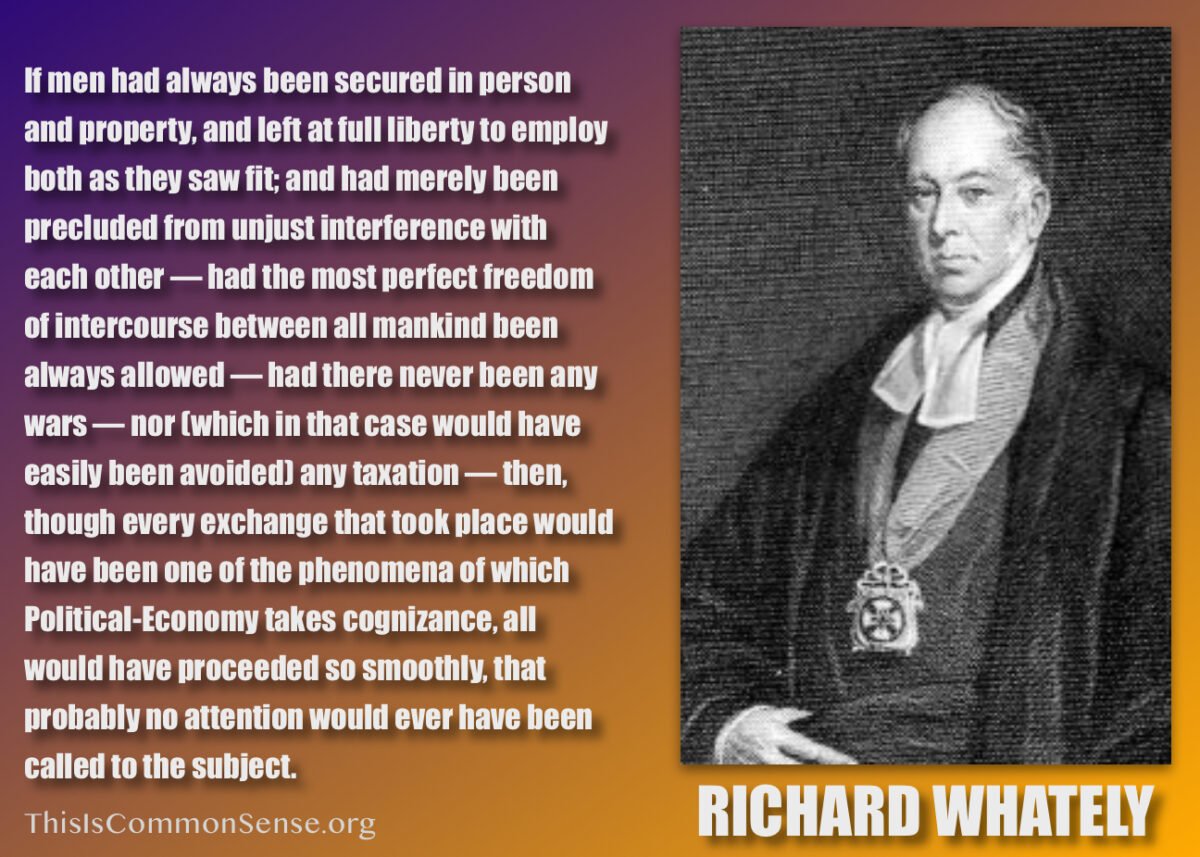
I wish for my own part there were no such thing as Political-Economy. I mean not now the mere name of the study: but I wish there had never been any necessity for directing our attention to the study itself. If men had always been secured in person and property, and left at full liberty to employ both as they saw fit; and had merely been precluded from unjust interference with each other — had the most perfect freedom of intercourse between all mankind been always allowed — had there never been any wars — nor (which in that case would have easily been avoided) any taxation — then, though every exchange that took place would have been one of the phenomena of which Political-Economy takes cognizance, all would have proceeded so smoothly, that probably no attention would ever have been called to the subject. The transactions of society would have been like the play of the lungs, the contractions of the muscles, and the circulation of the blood, in a healthy person; who scarcely knows that these functions exist. But as soon as they are impeded and disordered, our attention is immediately called to them.
Richard Whately, Introductory Lectures on Political Economy (1832), Lecture III.

On January 30, 1835, a house painter named Richard Lawrence attempted to shoot former military leader and then-President Andrew Jackson, but failed. He attempted to fire with two pistols, but both misfired, and he was subdued by a crowd, including several congressmen. That marked the first attempt on the life of a sitting U.S. president.

In 1976, the Supreme Court’s ruling in Buckley v. Valeo reined in such regulation … in part.
This month, at a symposium marking the 50th anniversary of the ruling, John Samples — a former Vice President at the Cato Institute and currently a Member of Meta’s Oversight Board — compared what happened after the 1976 ruling to what might have happened had the ruling been better or worse.
The alleged point of campaign finance regulation was to “level the playing field.” The actual point, Samples observed, has been to “protect the political status quo” by making it harder “to spend enough money to effectively challenge congressional incumbents.”
In Buckley, the court ruled that contribution limits were indeed valid (they aren’t) for the sake of combatting corruption or the “appearance of corruption.” But it also ruled that limits on campaign spending are limits on speech, hence invalid — thereby saving democracy, argued former Federal Election Commission chair Bradley Smith, in the Wall Street Journal a few weeks ago: “The Buckley court understood that effective political speech requires resources.”
The Court also upheld compulsory disclosure of donors and donations. This led to chronic calumniation of donors, helping to poison public discourse.
Samples suggeststhat a more libertarian Buckley might have enabled major reform, even perhaps privatizing of New Deal and Great Society spending programs in the 1980s.
On the other hand, had the decision been worse, “validating spending limits” as well, Congress would likely have continued to hobble challengers. And thus, perhaps, prevented the ascendancy of Ronald Reagan and the emergence of a GOP majority in the U.S. Senate.
Unwarranted restrictions on freedom of speech should be removed completely. Substantially removed is better than not at all, sure. But now let’s finish the job.
Something Brad Smith’s Institute for Free Speech works on every day.
This is Common Sense. I’m Paul Jacob.
Illustration created with Nano Banana
See all recent commentary
(simplified and organized)
See recent popular posts
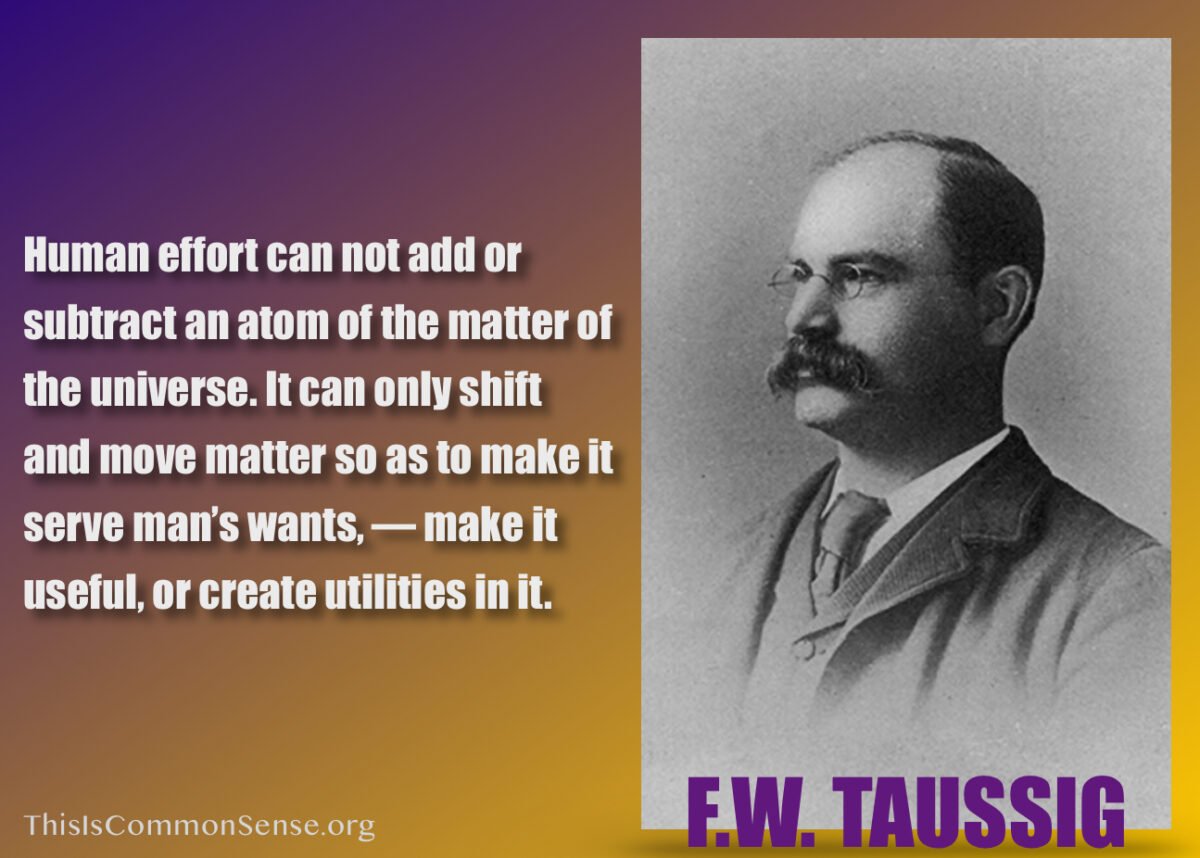
Human effort can not add or subtract an atom of the matter of the universe. It can only shift and move matter so as to make it serve man’s wants, — make it useful, or create utilities in it.
F.W. Taussig, Wages and Capital: An Examination of the Wages Fund Doctrine (1897), p. 3.
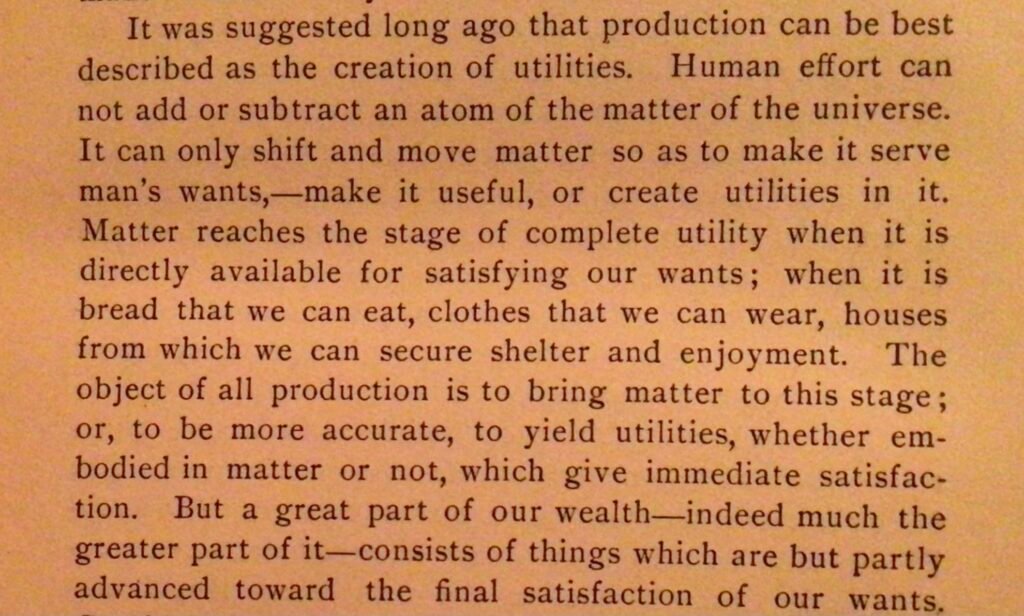
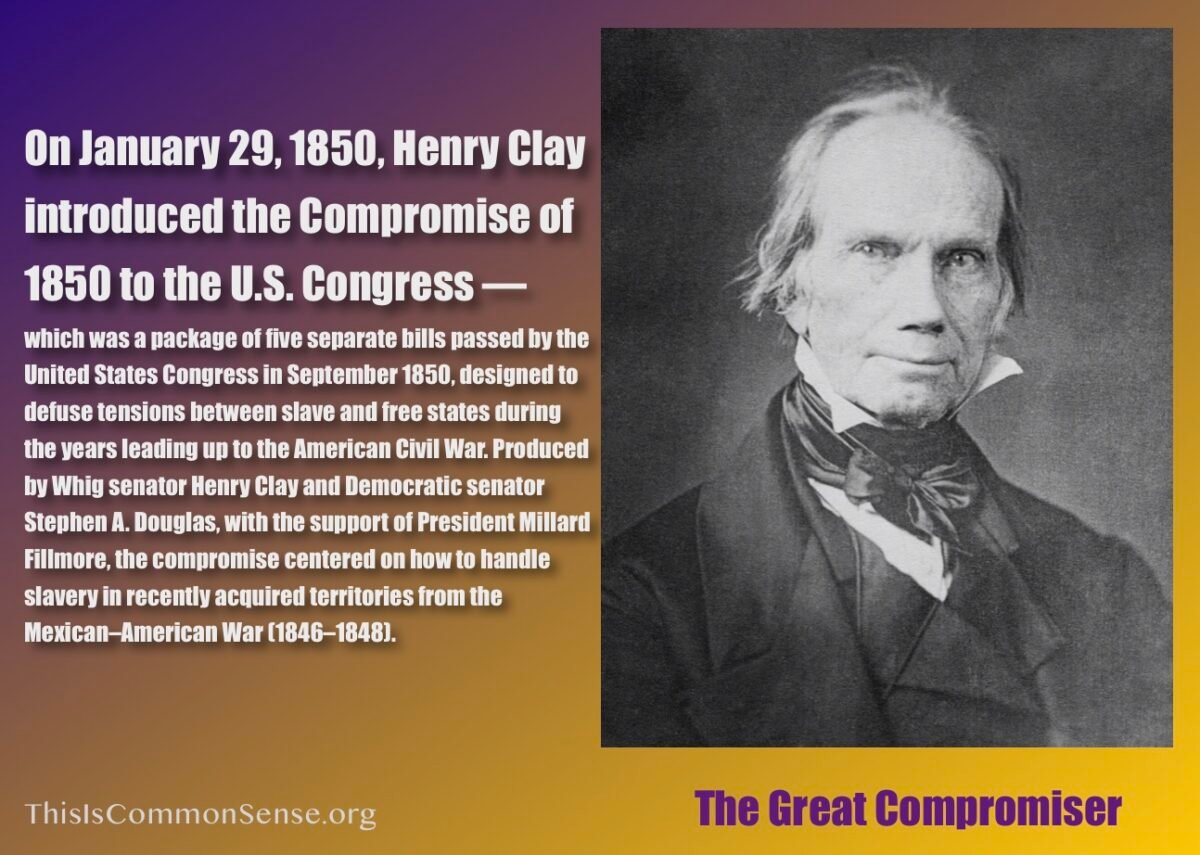
On January 29, 1850, Henry Clay introduced the Compromise of 1850 to the U.S. Congress — which was a package of five separate bills passed by the United States Congress in September 1850, designed to defuse tensions between slave and free states during the years leading up to the American Civil War. Produced by Whig senator Henry Clay and Democratic senator Stephen A. Douglas, with the support of President Millard Fillmore, the compromise centered on how to handle slavery in recently acquired territories from the Mexican – American War (1846 – 1848).
The compromise included a provision approving California’s request to enter the Union as a free state; it also strengthened fugitive slave laws with the Fugitive Slave Act of 1850. In addition, the compromise

“Disguised and undercover,” explains the O’Keefe Media Group article, “James O’Keefe embeds inside the World Economic Forum, slipping past armed security and exclusive guest lists to capture what the global climate elite say when they think no one is listening.”
The bad haircut? A goofy blond wig that Mr. O’Keefe (1984– ) donned to fool the European bigwigs (er, elites). He looked like Andy Warhol as a special guest on “Sprockets.”
What did this subterfuge accomplish? “Posing as an employee of a fictional climate engineering firm, O’Keefe and the OMG team are welcomed into late-night events, luxury hotels, and mountaintop forums where climate financiers openly discuss carbon taxes, geoengineering, and weather modification, commonly referred to as ‘chemtrails.’”
Yes, chemtrails!
I’ve been programmed to chuckle right now, hence that exclamation point.
Speaking of programmed — Grok gave me plenty of excuses to keep on chuckling. It also gave me the wrong URL for the O’Keefe Media Group (O’Keefe’s successor to Project Veritas) and words of wisdom like this: “If O’Keefe’s video shows attendees discussing it casually, it might be speculative chit-chat rather than official policy.”
One thing Grok couldn’t understand is the “optics.” O’Keefe is not wrong to note that some of the WEFers cheerleading for BlackRock do indeed “look like Bond villains.” A conference where people enthuse about seeding the upper atmosphere with chemicals to cool off the planet? That should be the premise of the next James Bond flick.
Has weather modification actually been going on … for decades?
I don’t know. But if these folks are talking about climate geo-engineering, what wouldn’t they do?
This is Common Sense. I’m Paul Jacob.
Illustration created with Nano Banana
See all recent commentary
(simplified and organized)
See recent popular posts

It’s easier to ask forgiveness than it is to get permission.
An old saw often repeated by Rear Admiral Grace Brewster Hopper, computer scientist.